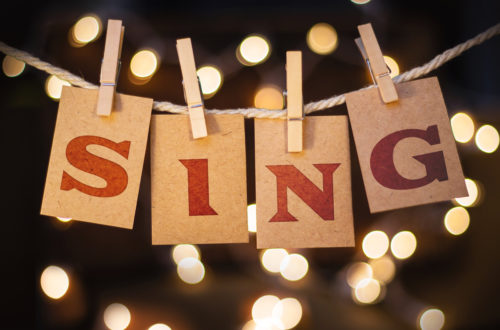
To do or not to do?
Do you have a to-do list? Do you even like to-do lists?
I write to-do lists because it helps get the buzz out of my head—a swirling confusion of many things yet to do. To-do lists help ease a lurking dread that if I don’t write things down I will forget something important or urgent or boringly mundane.
Taskmaster
Although preventing my head from exploding is an honourable goal, I often immediately regret writing a to-do list. Too soon it becomes a severe taskmaster that rules my priorities and conscience.
And it seems only to expand rather than reduce. As soon as I begin ticking things off the list, any sense of achievement is fleeting, because inevitably I think of something else that should be added to it. Before I forget it. And so it goes and so it grows.
I’m sure other people do far better with their to-do lists. In fact, I have friends who know how to give each item the correct priority and attend to each one methodically and efficiently. I imagine them reaching the end with a satisfied smile and putting their feet up to enjoy an impeccably brewed beverage.
Unfinished
Real or imaginary perfecters of to-do lists haunt me as I limp towards the never-end of my lists. And I dread the next list that I will inevitably create. Meanwhile, my hastily-made beverages get cold, forgotten in a flurry of good intentions.
My never-ending to-do lists are really Magic Pudding lists—they never ever run out. And occasionally, I find one languishing at the bottom of a pile of papers and books, mute testimony to my inability either to complete it or to throw it away.
I will probably have an unfinished to-do list on the day I die.
What does matter
But common sense tells me that on the day I go to be with the Lord it really won’t matter whether I’ve put out the bins, washed the dishes, backed-up my laptop or changed my haircut appointment. And common sense assures me that if the Lord calls me home before I’ve paid the plumber, returned a borrowed DVD, completed my tax return or finished this sentence, three of those things can be achieved by others after I’ve gone. And an incomplete sentence really doesn’t …
So why do I keep writing to-do lists if they torment me so much?
I think my reasons are almost sane. Almost. I write them because they give me a vague sense of direction, provide evidence of work done and help me pretend that I have things under control.
And, very occasionally, my to-do lists help me to face up to the things I’d rather avoid. I actually get them done.
The end of the list
It goes deeper, though, down through the stratum of daily struggles to the bedrock of basic human need. As I begin ticking off the items on my to-do lists, I’m glad to complete each task. Because each tick takes me closer to my ultimate objective—the end of the list.

While the end represents some measure of achievement, for me it also represents an opportunity to stop striving. A chance to put my feet up. That’s because the end of each list represents rest.
Sometimes I get so tired, so ragged-weary, so care-worn-out that the prospect of rest is like a mirage hovering on the distant horizon, tantalising and elusive. Work is never done, never really done.
The floors always need sweeping, the papers always need sorting and the lawn always needs trimming. Whether I write lists or not, there is always more to do.
And even if I reach the end of a to-do list, my enjoyment of rest is always tempered by the knowledge that it won’t last. It’s transitory. Impermanent.
No matter how much I might strive for the satisfaction of tasks completed and the relief of rest enjoyed, tasks have no enduring value and rest has no long-term effect. Like the world I live in, they will one day pass away.
The rest I need
So where is the comfort and meaning in the midst of this? Well, this is where Jesus’ words sing to my heart, the one that longs for satisfaction and rest:
Come to me, all you who are weary and burdened, and I will give you rest. Take my yoke upon you and learn from me, for I am gentle and humble in heart, and you will find rest for your souls. For my yoke is easy and my burden is light (Matt 11:28-30).
What a paradox! Jesus invites me to come to him in my weariness and receive rest. But it’s not the ‘putting my feet up’ kind of rest that I crave. It’s the ‘take my yoke upon you and learn from me’ kind of rest.
He knows that I’m worn out and falling-down tired. And yet, he also knows that what I need far more than physical rest is rest for my soul.
Easy & light
Being yoked to him—like a team of labouring oxen—is a strange but simple image. It helps me to remember how blessed I am to trust in a humble and gentle Saviour who knew what it was like to work—the labour, the sweat and the frustration of work in our imperfect world.
He knew what it was like to be tempted—the danger, the inner conflict and how it feels. He knew what it was like to be powerless—the fear, the agony and what it’s like to be vulnerable.
Even though he was the Son of God, Jesus did not complain when he worked. He did not protest when he was tempted and he did not retaliate when he was unjustly sentenced to death. Rather, in all things he submitted to his Father’s will—his yoke—even when his soul was in anguish and he was forsaken.
As I follow this Saviour and find my rest in him, his yoke directs me gently but firmly and keeps me from straying. And he lightens my load so it brings joy, not heaviness.
It’s still work, but I do not have to accomplish it alone. I still have a to-do list, but it has one single-minded priority and purpose—to live and work in tandem with him. For him.
I still get worn down, but I know he is with me and he will ensure that I reach heaven and the ultimate rest—being with him forever.
Featured image: Photo by Given Ideas | Lightstock.com




